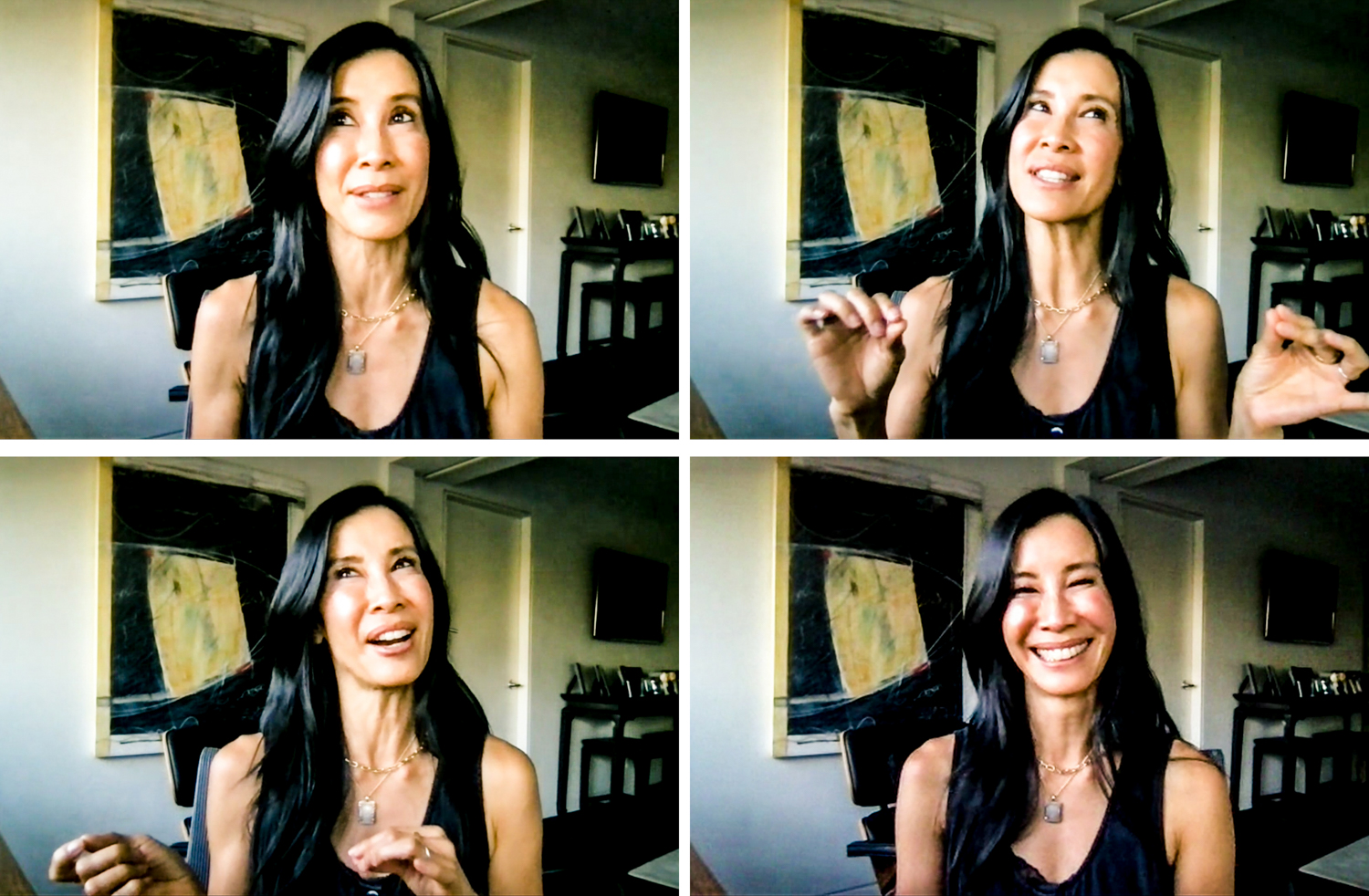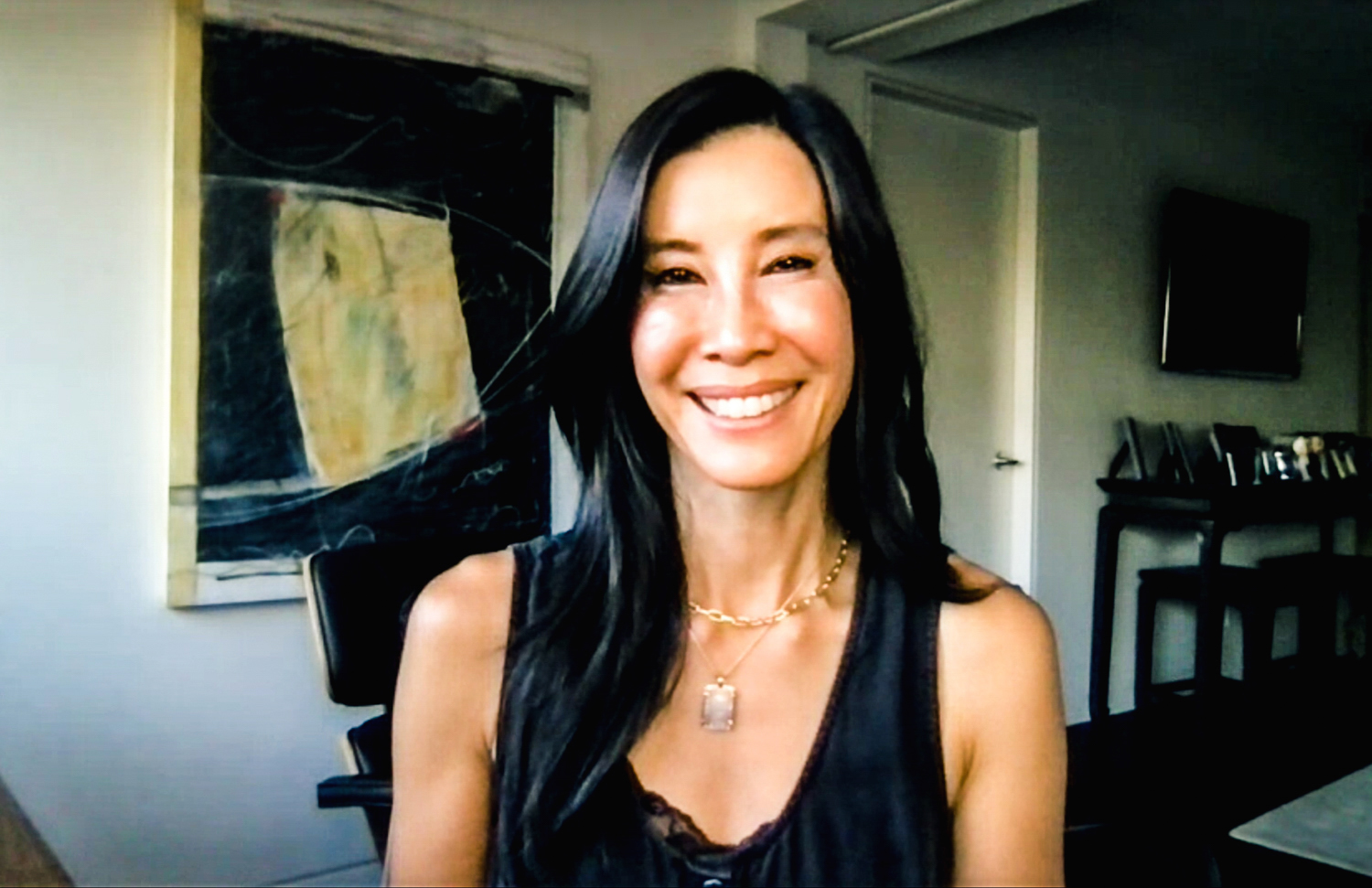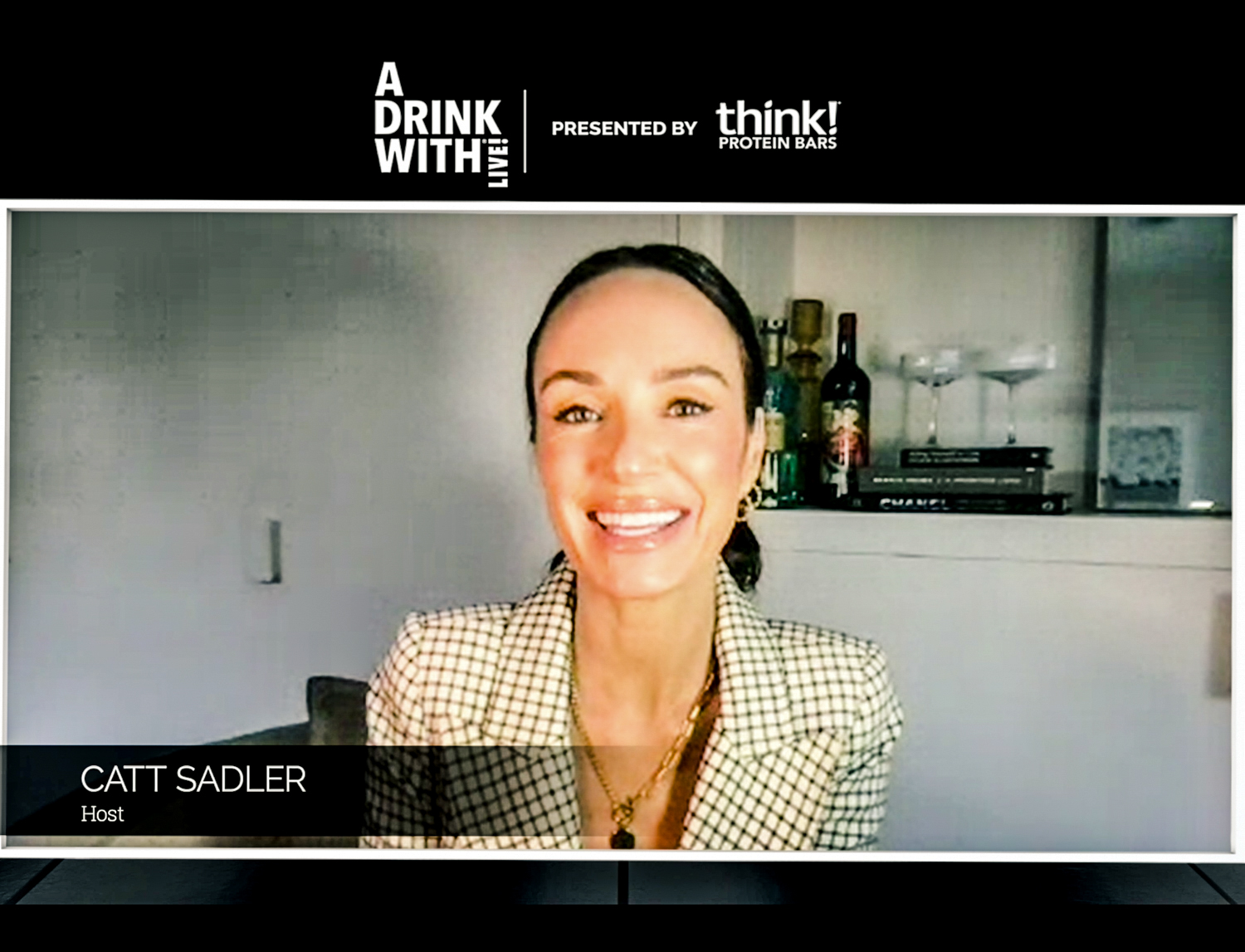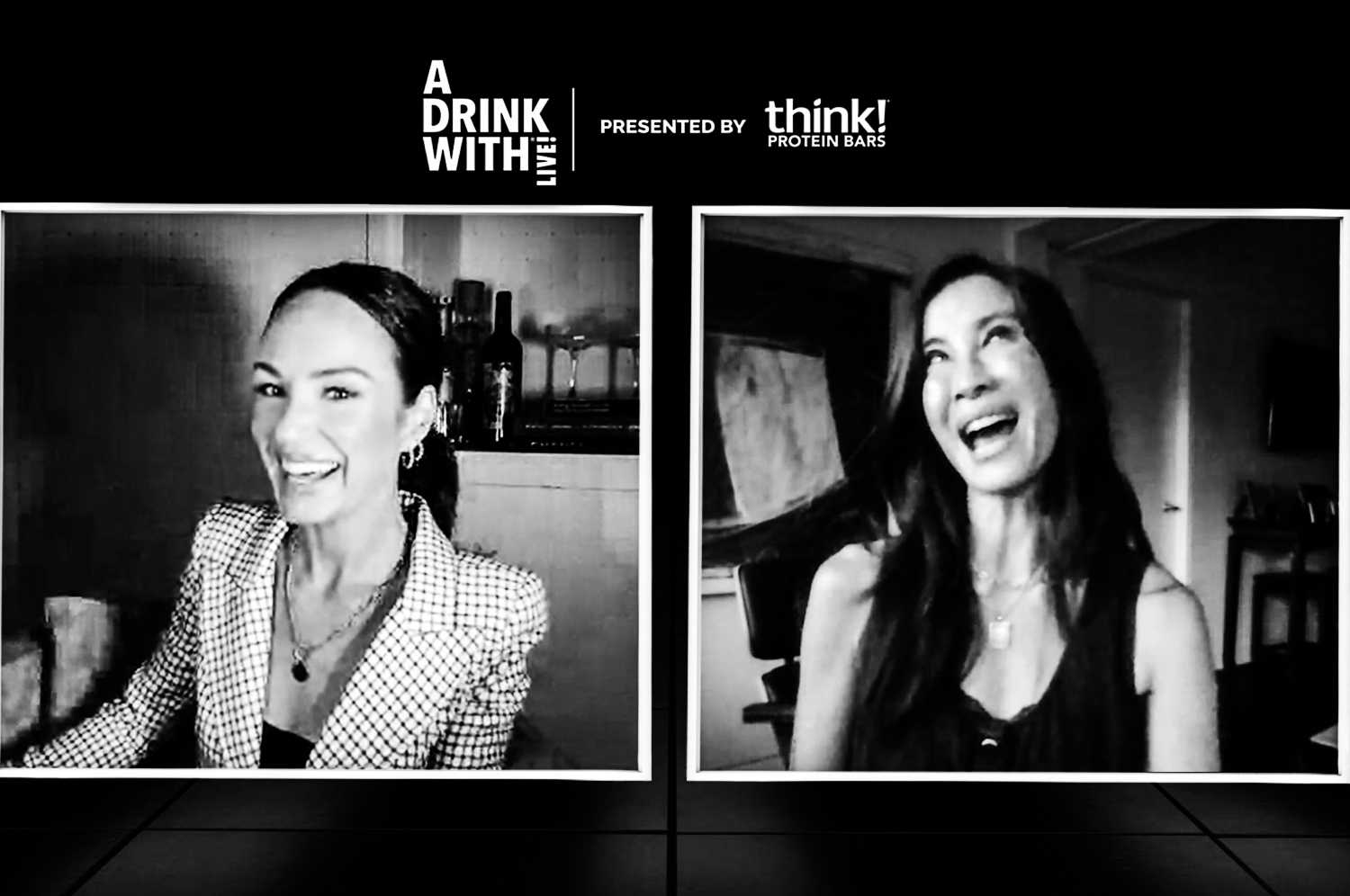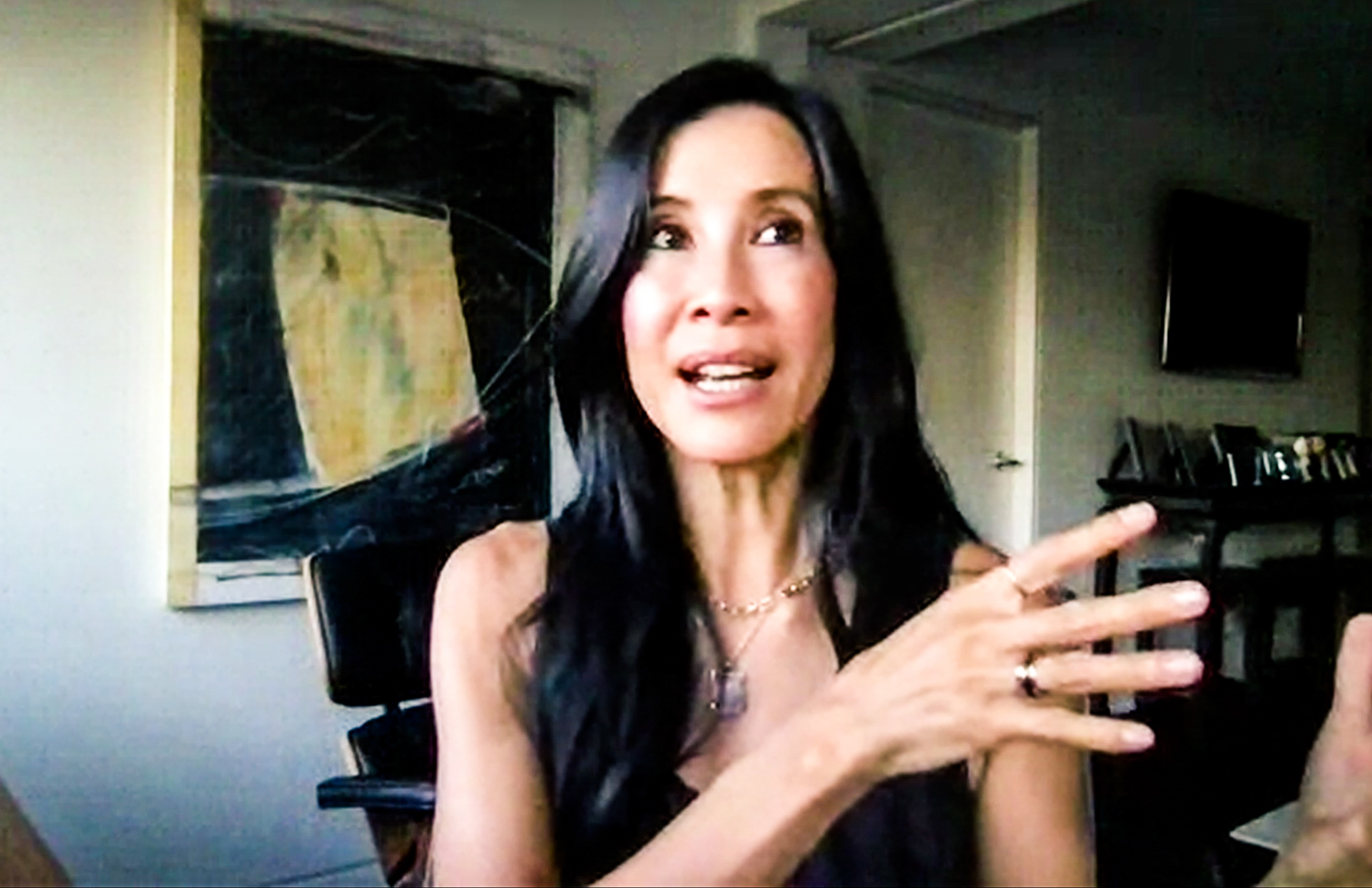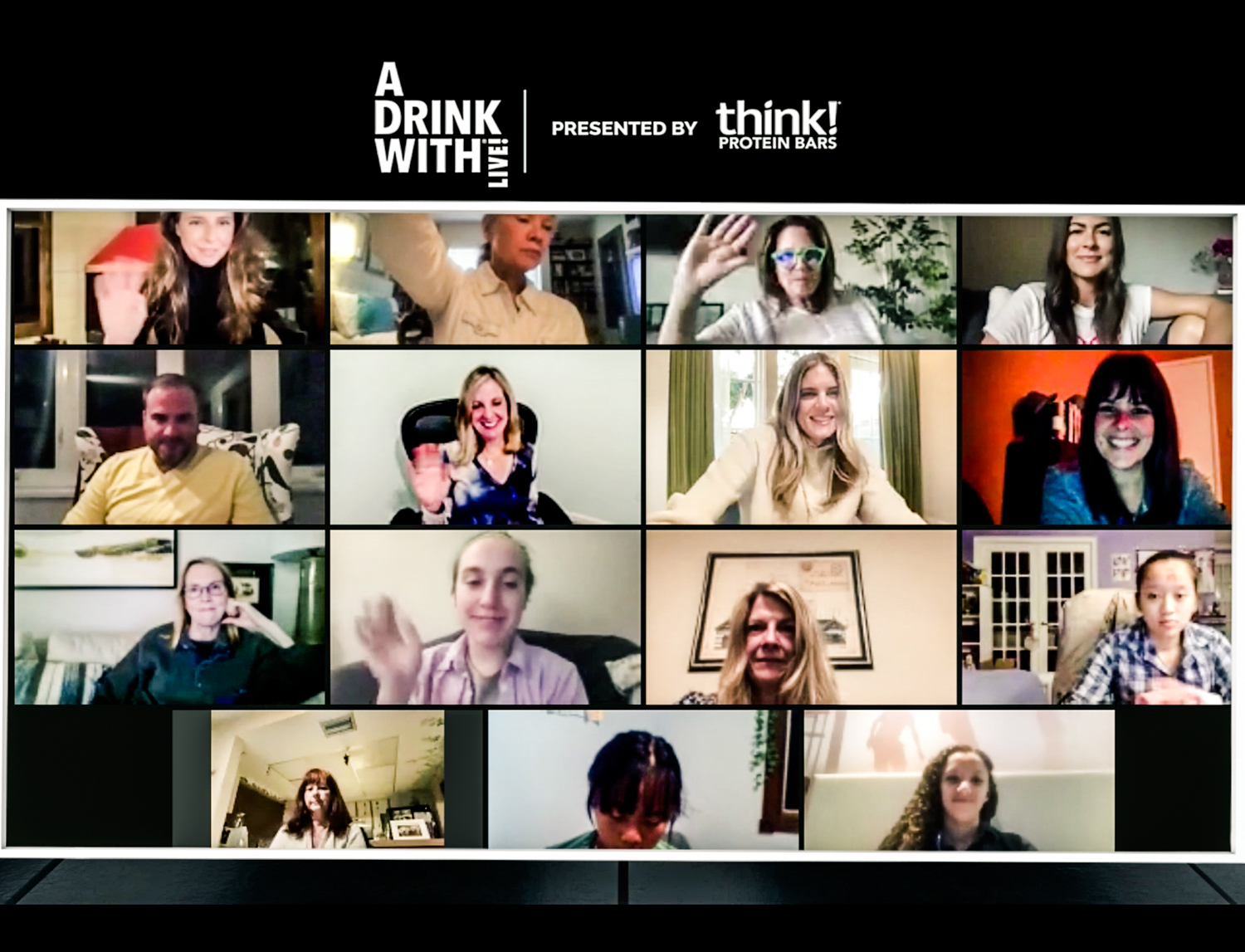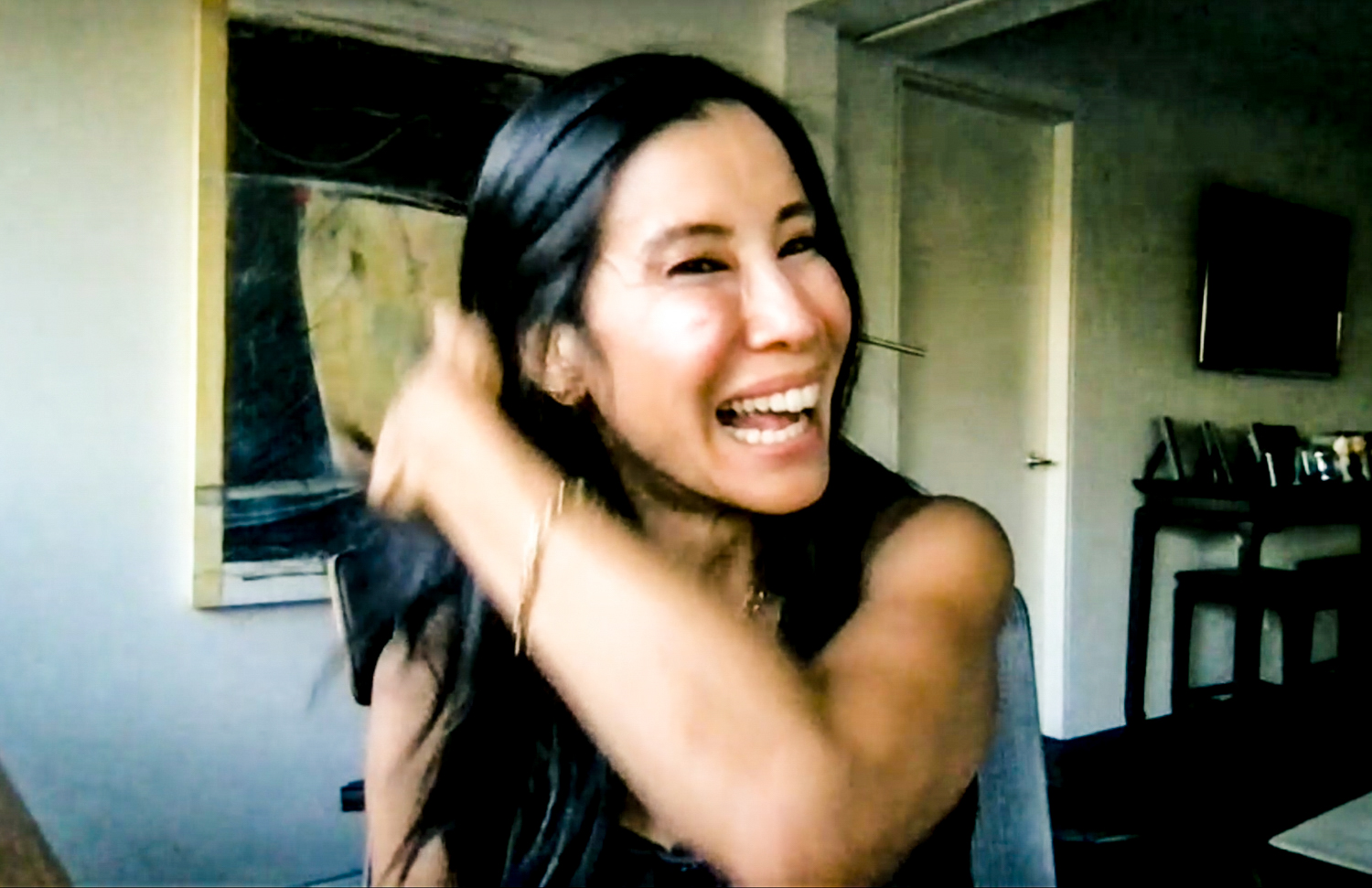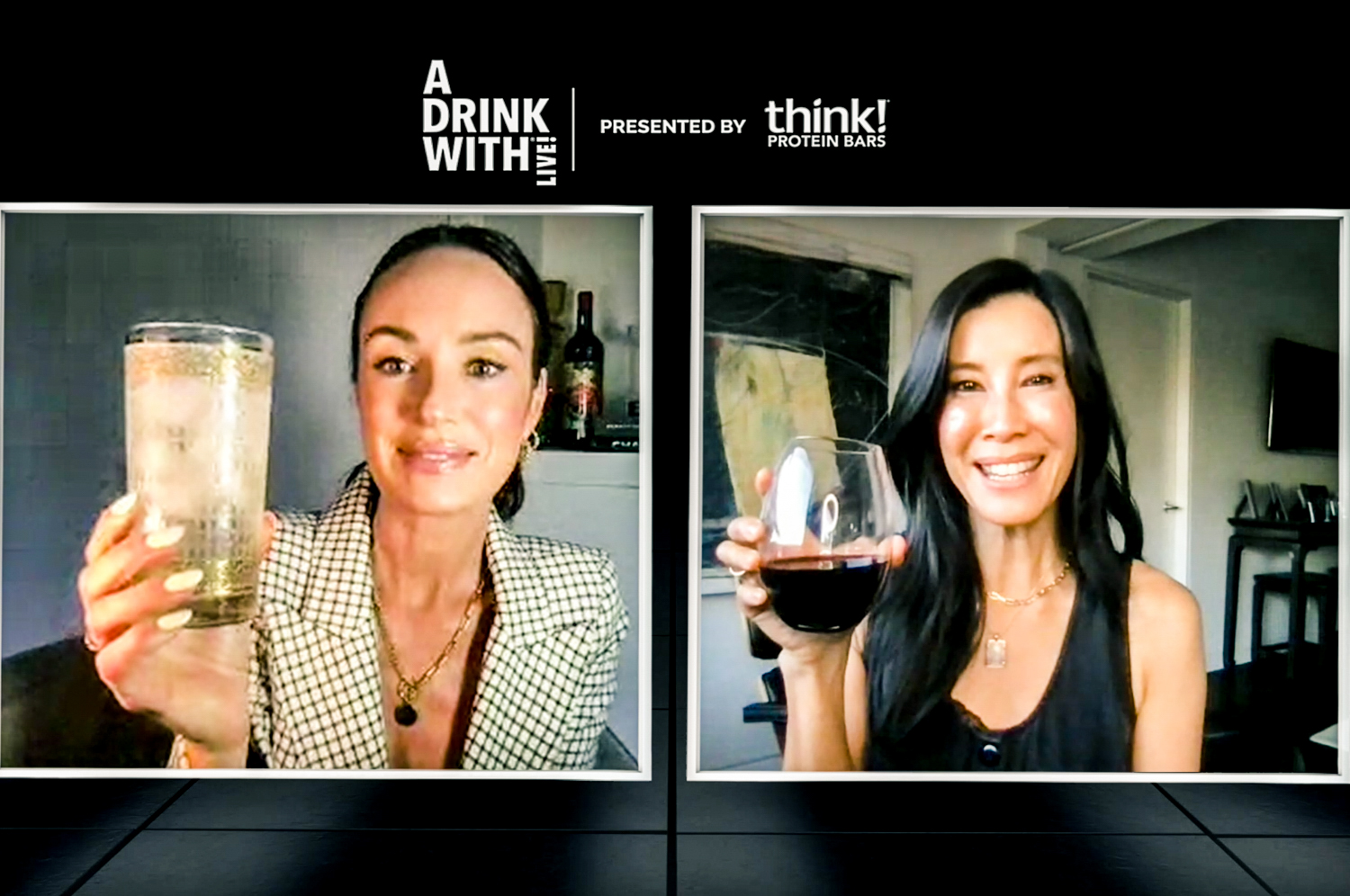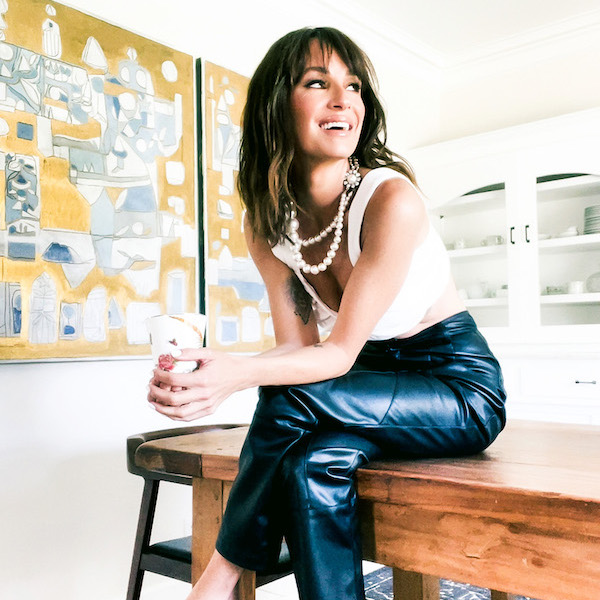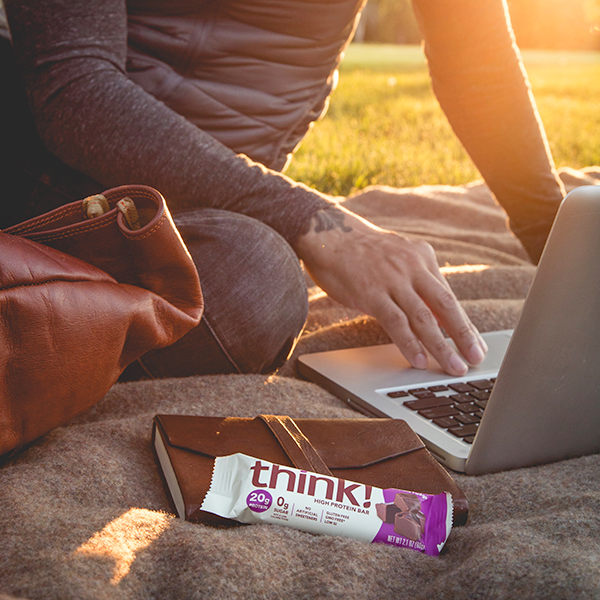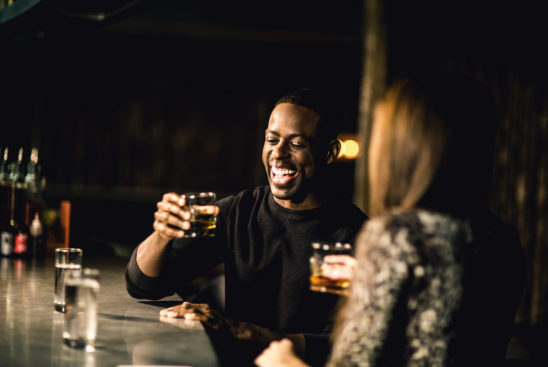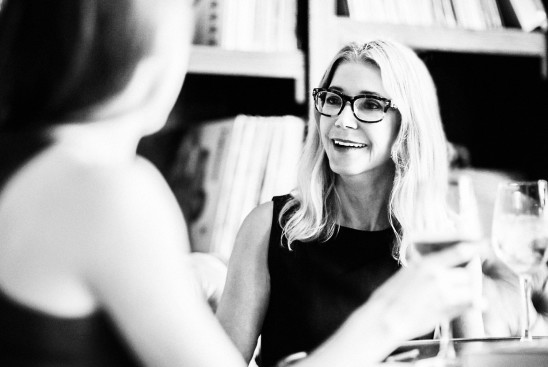I’m drinking a cabernet sauvignon. I don’t normally drink when it’s still daytime, but I’m going to enjoy this.
I’ve never really been a big drinker. I’m a lightweight, so I’m a one-drink-date. But since COVID got rooted in our country, I have to admit that I have about one drink — no more than two, usually two full glasses — every single night, just to calm myself down. As you know, things were pretty overwhelming for a long time. They still are with two kids in the house all the time. So, the moment they went to bed, I’d think, “I need my wine.” But fortunately, I’ve always been pretty good at tempering myself and not ever going overboard. Just that little bit.
Our show has been on the air for eight seasons. Our eighth season is about to launch on Sunday. Back in June 2020, people on social media were posting about Juneteenth. Now, we all know what Juneteenth is; it’s now been made a federal holiday. But back when people started posting about it, I just thought to myself, “I’m so embarrassed that I didn’t know what Juneteenth was. I didn’t know that it was considered the official end of slavery.” This propelled me to think about all of the events that have happened in American history that didn’t make it into our history books, and how many of them have actually gone to impact how we live and how we think today. So, that was the impetus for season eight of “This is Life.” Every episode is grounded in one moment or event in our history. We dissect it to look at where we are today with the issue. The first episode is about the murder of a young Chinese American man in Detroit in 1982. As we all know, Detroit was the automotive capital of the world. And in the early ’80s, a severe economic downturn began. People were starting to lose their jobs in the automobile industry and blaming it on Japan, because Japan was producing all these fuel-efficient cars. An anti-Japanese, anti-Asian sentiment began to penetrate the city. This young Chinese American man was at a bar celebrating his bachelor party. He was about to get married and two out-of-work auto workers got into an altercation with him. They accused him of being Japanese and taking away their jobs. They waited for Vincent Chin outside of the bar, and they beat him to death. Those two men never served a day in prison. This case became the first ever Civil Rights case involving an Asian person, and really galvanized the Asian-American community. When you think about what’s happening now, since COVID got rooted in America, Asian Americans are again, being scapegoated and have been blamed for bringing this virus to this country. So, so many Asians have been attacked. Attacks on Asians in this country have increased 1,300 percent since the start of COVID. We’re looking at this pattern of scapegoating and discrimination that Vincent Chin experienced, but that was predated by centuries. For me, going to history class in high school was really boring, because history seemed like it was told through one lens. History can often be dry, but I like to think that we’ve produced episodes that are really entertaining and interesting.
We’re so used to seeing you travel the world to tell other people’s stories, but you were very much a part of this story as an Asian American. As a journalist, what was it like for you to tell this story?
You’re so right. I have gotten pretty decent at telling other people’s stories. To tell this story that is so close to me and the community right now was incredibly emotional and challenging, but so important. I never knew, growing up, that there was a Chinese Exclusion Act. That Chinese people were the only people in American history to have not been allowed to immigrate to the United States. I didn’t know that, in World War II, over 120,000 Japanese people, most of whom were American citizens, were forced to live in incarceration camps for four years during World War II, after the Japanese government bombed Pearl Harbor. There’s so many pivotal moments in Asian-American history that didn’t make it into my history books, and therefore, I grew up not knowing about them. And what happens when we don’t have any reference for Asian-American history? It becomes really easy to overlook Asian people, or even dehumanize them because we have no reference for their contributions, for their struggles, for their triumphs. So, I hope that people will tune in just to educate themselves about the diversity that exists within the Asian community, but also about the things that we’ve contributed to this country as well.
At the very beginning of the episode, you say, “I have been waiting my whole life to tell this story.” What do you mean by that?
I grew up feeling so much shame about my ethnicity, because I was one of the few Asians in my community. I hated being Asian, and I didn’t like inviting anyone to my house because it always smelled like Chinese food. I was always so embarrassed when my parents would speak Chinese in front of my friends, even though they spoke perfect English. For me, just this idea that one day I would be able to not only tell this story about the contributions, and the things that Asian Americans have endured in this country, but I’m also doing another show for HBO Max called “Takeout,” which is an exploration of Asian American history through the lens of food. And who doesn’t love Asian food, you know? It’s a way to open the door to these histories, to these amazing stories that we might not have known about otherwise. In some ways, Chinese restaurants have become as ubiquitous as McDonald’s. There are many towns in this country that don’t have McDonald’s, but they have a Chinese restaurant. Learning the stories of the people who may have had completely different backgrounds, like mine, and pursued opening a restaurant because it was their pathway to the American dream has been incredible. We’ve shot all six episodes, and I cannot tell you how special every episode is. I mean, you will experience the full range of emotions. You will cry, you will laugh, you will find yourself salivating over the incredible food. You’ll walk away feeling more educated about your fellow humans.
As a little girl who grew up feeling so much shame about my ethnic background, to be able to tell these stories and celebrate this incredible culture that I come from, and also the vastness of the Asian-American diaspora is just, it’s so awesome. There are so many different kinds of Asians in this country, with totally unique languages, and totally unique cultures and histories. To be able to present that to a wider audience is such an incredible honor.
You have two daughters. How are you making sure they learn the stories of what former Asians in America went through?
There’s a huge debate going on right now about the kinds of history that we should teach in schools. When kids are kids, this is when empathy is developed. Empathy is learned, and the more kids learn about things that other Americans have experienced, or even contributed, or triumphed… that inevitably will allow them to become more empathetic. I don’t know how many mothers there are who are watching this right now, but it’s been really important to communicate these kinds of things to my own kids. My own kids, they know about the Chinese Exclusion Act, they know about Japanese internment, they know about Jim Crow laws. My five-year-old, if you ask her who Rosa Parks is, she could tell you right now. And actually, a couple of months ago, a little boy at my eight-year-old’s school called her “Ching-Chong.” And her best friend, without missing a beat said, “I will not be a bystander to this,” and went and told the teacher. I just have to give it up to my daughter’s best friend’s parents, because they obviously care about their daughter enough to educate her about things that her friends might be experiencing. I get emotional even thinking about this because it’s incumbent upon us as parents to teach kids how to be more tolerant, how to be more appreciative, how to understand other people. The reason why we’re in this place that we are right now, which is so divided and so volatile, is because we were never really taught other cultures and how to appreciate the contributions of other communities. So, at the very least, as parents, we can teach these things to our kids. And my daughter’s best friend’s parents, to me, that deserves the gold medal of parenting.
How has the divisiveness and misinformation in our country affected you as a journalist?
When you characterize mainstream media as fake, people are going to look for places to find information. The population that has become most vulnerable to conspiracy theories is the baby boomer generation; our parents and grandparents. Because people don’t understand the algorithms that are at work on things like YouTube. When you put something into YouTube, let’s say you heard someone talk about some anti-vaxx information. So, you put that into YouTube. Well, your feed instantly populates like-minded information that essentially supports what you’ve inputted into YouTube, even if it’s not real. Even if it’s illegitimate. YouTube has just agreed to pull conspiracy theories around vaccinations. It’s been a long time coming. Media literacy is something that is so important. Things go viral so quickly and people have disavowed mainstream media. They’re looking to things like social media for their news, and that’s really dangerous. The reporting that the reporters are doing in the field, at least on CNN, is fact-checked like crazy, and then some. If there is an error, the network will apologize. That’s different from the people who come on to express an opinion. But the reporting has to be vetted. It has to be fact-checked. So, it’s important for people to verify sources. If you’ve never heard of one of the outlets that is delivering information on YouTube, continue to check some sources that you have heard about, okay? It’s so, so important.
What’s your take on the latest conservatorship developments for Britney Spears?
I can’t say that I’ve been following it so meticulously, but I did meet Britney Spears when I was one of the co-hosts on “The View.” This was 20 years ago. I’ll never forget how shy she was, even a little bit awkward. She was so young. And then the cameras turned on and she was performing. It was this complete transformation before my eyes. When I think back on her, again, she was so young, but she didn’t seem like she had any control of her life. I chalked it up to her being young. Your parents at that age, there’s every reason why they should be protective of you, but this idea that they have been so in control of her life, even into adulthood and that she has had no rights to her own likeness, it’s just wrong.
My hope for Britney is that she is able to live freely, and that’s not just live freely of her parents, to live freely of all of us. When you think about what her parents had her do… think about the space that she occupied in pop culture and how open and available she was, and still is, to any kind of criticism or opinion. Remember those ads with Bob Dole, salivating over her? The Pepsi ads. I just hope that she is able to live a life of peace and freedom and the life that she has always wanted to live, that she’s never been able to live.
[Q/A Kelly]
You’re known for your on-air storytelling, and since writing is such an important skill across all formats of journalism, can you talk about your relationship to writing?
I have penned a book with my sister called “Somewhere Inside.” It’s about my sister’s captivity in North Korea and the efforts to get her released. It was an amazing process because I got to do it with my sister so soon after she was released from the most isolated country on earth.
I’m a pretty voracious reader. I need to write more. I write and contribute to most of the scripts for my show. At some point, I will work on penning the definitive memoir. I don’t know when that’ll be, because I have two young kids and it’s a process, but I love doing it. Nothing gives me as much fulfillment and excitement as reading beautiful writing. It just incites something in me that nothing else can. So, that’s my relationship. I love doing it. I need to do more.
[Catt Sadler]
What’s one book we should all have on our nightstand?
The last book I read was Anderson Cooper’s book “Vanderbilt.” I interviewed him on Monday for a live talk and it’s fantastic. I’ve known Anderson Cooper for about 30 years. I had known a couple of years after I had met him that he descended from one of the richest families in America at the time, but he was the most humble, unassuming guy who wore the same flannel shirt every day and ate McDonald’s and would go into war zones and sleep on bombed-out buildings. So, when I found out about the family from which he descended, I was in a total state of shock. As someone, again, who loves history, it’s really this incredible window into the Gilded Age of America, but [in his book] he also talks about the things that were happening concurrently and really makes a point of talking about the vast inequality that existed in America then and today.
[Q/A Charles]
I love your show. I’m curious, how do you find your topics?
I read a lot. My team and I read a lot. A lot of the stories come from books and some come from word of mouth. One of the most poignant episodes aired last season is called “The Prison and the Prep School.” It’s about a reading group, a book club inside a prison. It’s a prison that houses more inmates serving life sentences than anywhere else in the state of California. And something remarkable happens in that episode. I’ve collected a lot of interesting characters throughout my life in my career. I happened to be visiting an inmate in the San Quentin State Prison. He told me about this incredible book club. I said to myself, “I have to do this story somehow.” It culminated in us doing it last season.
There have been so many people who have said to me, “Lisa, please look into this story.” In fact, one of the episodes this coming season is about the history of sexual assault in the military. One of the reasons why we decided to do it was after Private First Class Vanessa Guillen was killed in Fort Hood, Texas. I was overwhelmed with emails from female veterans saying, “Please, look into this. Please, do a story about sexual assault in the military, because nothing has changed since the Tailhook scandal in the 1980s.”
[Catt Sadler]
Before we let you go, what is the best way each of us can get involved to stop Asian hate? What should we be doing?
Oh my gosh. Thank you for that question. I think the best way to stop Asian hate long term is to take the time to acquaint yourself with Asian people and Asian-American history. There are some incredible books. There are some incredible documentaries. Watch my series when it comes out on HBO Max.
Knowledge leads to humanizing people. And when you don’t have any frame of reference, it becomes so much easier to dehumanize. If you have it within yourself to speak out about it, or there’s some great online bystander trainings. They’re very short. If you do that, like my eight-year-old daughter’s best friend did, I think that would be incredibly helpful.
[Catt Sadler]
I know you love ’80s music. If you could have a drink with any ’80s musical icon who would it be?
Well, I did have the drink with my favorite artist, who has since passed away, and that was Prince. To me, the single most talented human being who ever walked the earth. It’s a longer story, but I went on a date with Prince when I was a cohost on “The View.”
[Catt Sadler]
What?!
All we did was talk. We had the most riveting conversation from about midnight to 5 a.m. Nothing happened. It was just an amazing conversation and evening. He was truly one of the most remarkable human beings that I had ever gotten a chance to interact with. I’m just, still to this day, devastated about his passing too early.
[Catt Sadler]
That’s going to go in the memoir. Am I right?
Perhaps. What I will say about Prince when I did spend that evening with him, was that he was a very serious… I’m not going to say the specific religion to which he professed, but he was a very religious man. He had gone through a conversion. So, he was completely respectable and polite. We had a lovely… actually two nights. We had a lovely experience. It was not romantic. It turned out not to be romantic, in a good way, but it was just beautiful. Let’s just say I’ll never forget it.

